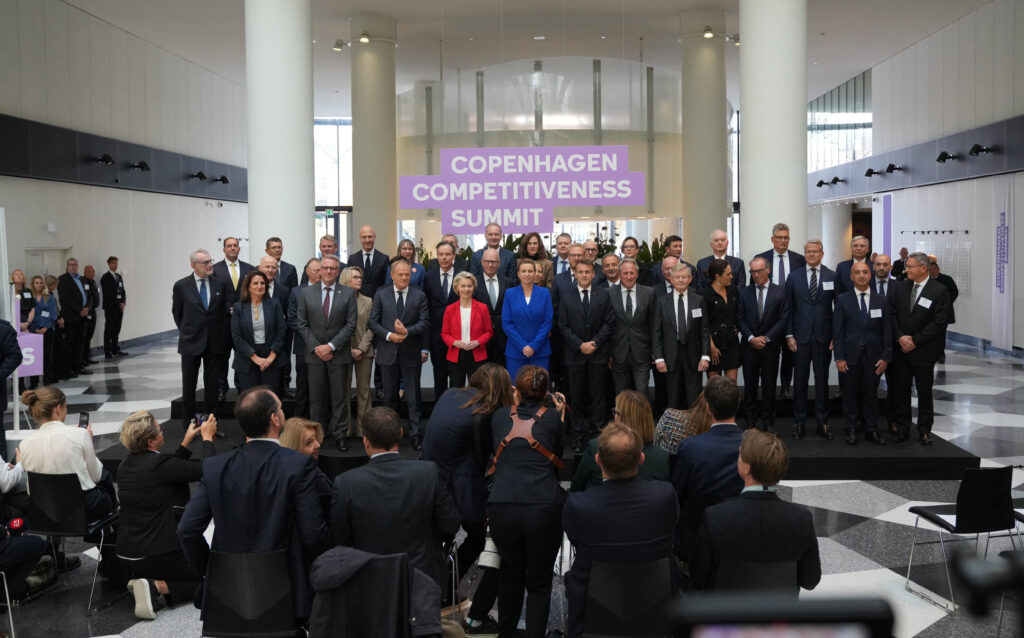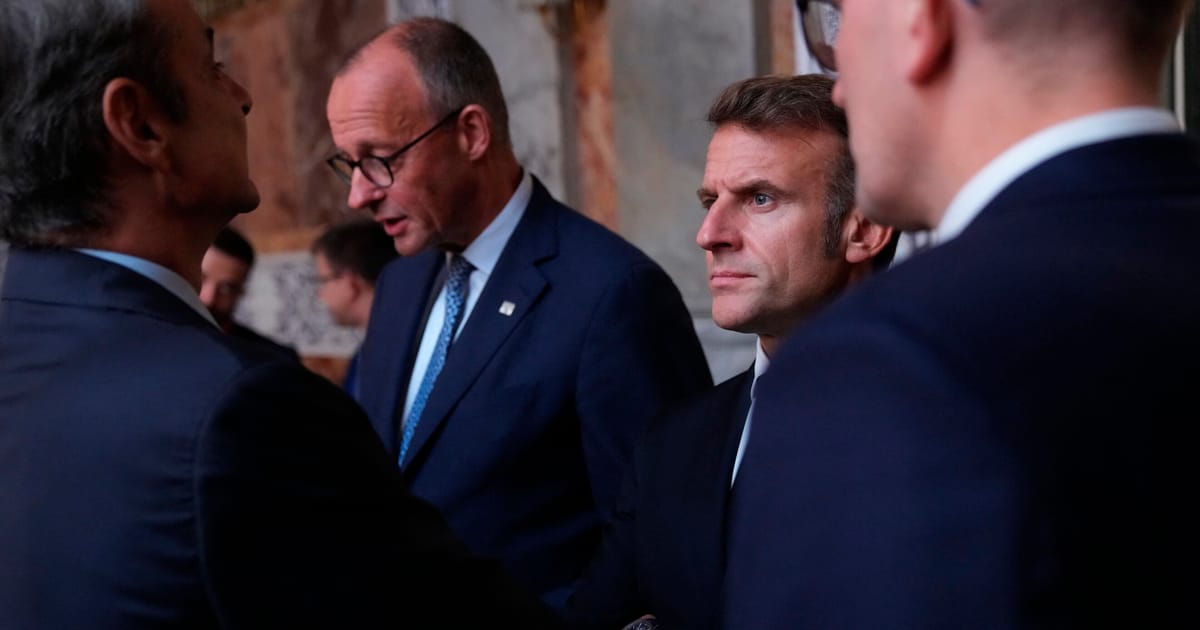“There is a risk that the EPC becomes just another multilateral platform for sideline meetings, and we have many of them,” said Bojana Zorić, a policy analyst at the EU Institute for Security Studies.
“We had bigger expectations,” she said, though she acknowledged that informal talks can prove useful.
 “I can’t think of a concrete, tangible result from the formal part of the EPC,” said an EU diplomat. | Sebastian Elias Uth/Ritzau Scanpix/AFP via Getty Images
“I can’t think of a concrete, tangible result from the formal part of the EPC,” said an EU diplomat. | Sebastian Elias Uth/Ritzau Scanpix/AFP via Getty Images
While the gathering hasn’t lived up to the hype set by Macron, most of those who spoke to POLITICO said it would be wrong to consider it a failure. Dialogue doesn’t hurt anyone, after all.
Sylvain Kahn, a professor of European history at Sciences Po in Paris, said it’s important to remember that the EPC’s goals were vague from the start despite the lofty language used by Macron. The initiative, he said provides an opportunity to bring “all the countries that don’t support the invasion of Ukraine on the same boat, which is piloted by the EU. That’s smart.”
A third diplomat, this one from another EU country, praised the EPC as “a good framework for cooperation, which mostly allows for some publicity and consensus-building at home.”
France and Moldova used a previous meeting to unveil an initiative to combat disinformation, and on Thursday Macron and Italian Prime Minister Giorgia Meloni will present a new joint effort to combat drug trafficking.
